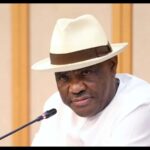An intelligence report released on Monday stated that the sit-at-home order by separatist group Indigenous People of Biafra (IPOB) in the South-East has caused the death of over 700 people in the region over the past four years.
Originally presented as non-violent protests, they have been hijacked by armed groups that target establishments and people perceived to be linked to the government.
ALSO READ: IPOB declares May 30 sit-at-home to honour Biafra heroes
SBM Intelligence, a consultancy in Lagos, reported that the fatalities resulted from the killing of civilians who defied the weekly stay-at-home order every Monday and on other specific days, as well as from clashes between the IPOB and security forces.
“Individuals or groups enforcing the order, sometimes armed, have engaged in acts such as setting fire to commercial vehicles and attacking those who defy the directive, creating an atmosphere where compliance is often driven by fear.
“The sit-at-home protests, enforced by IPOB since 2021, have transformed from a symbolic act of dissent into a protracted crisis with devastating socioeconomic and security consequences for South-East Nigeria.
“While there was a high rate of compliance with sit-at-home orders in 2021 (82.61%), surveys reveal that actual support is much lower (29%) now, with many complying under duress,” the SBM report stated.
SBM estimates that the South-Eastern region has “suffered staggering losses, including 7.6 trillion naira ($4.8 billion) in economic damage, 776 fatalities”.
Disruptions to education, governance and livelihoods have become systemic, it said.
The IPOB group routinely denies it is behind attacks, which have also been carried out by criminal gangs and political rivals using the group’s name.
Former London estate agent and IPOB founder Nnamdi Kanu is on trial on terrorism charges in the capital, Abuja.
A previous bid to establish a separate Biafran state for the Igbo people led to a bloody civil war with federal forces between 1967 and 1970.
More than one million people died in the conflict, many from starvation.
But secessionist sentiment remains, stoking tensions in sub-Saharan Africa’s most populous nation.
An IPOB spokesperson denied the group was responsible for the deaths.
“Those causing the killings are the kidnappers and criminals recruited by the government to blackmail and demonise IPOB,” the spokesperson said.
The IPOB launched the sit-at-home protest in August 2021 across the five states of Nigeria’s southeast, using it as leverage to demand the release of its leader, Nnamdi Kanu, who is facing trial in the capital, Abuja, on terrorism charges.
The group suspended the weekly protest days later, citing a “direct order” from Kanu, who has been in custody since 2021, and reinstated it only on days the IPOB leader would be appearing in court.
However, other armed groups claiming allegiance to IPOB and factions within the group have persisted in enforcing the weekly protest, launching attacks on government facilities and perceived pro-government individuals.
Despite IPOB’s attempts to disassociate itself from the region’s violence, the police have accused the group of involvement in several incidents, including a 2021 attack on a prison and the murder of over 30 travellers earlier this month.
The IPOB denied responsibility for those two attacks.
SBM report added that beyond the deaths, the sit-at-home order, which suspends economic activities in the southeast every Monday and on days when Kanu appears in court, has resulted in economic losses surpassing 7.6 trillion naira ($4.79 billion).
The proscribed IPOB movement is pushing for the secession of the South-East, where a bloody civil war was fought in the late 1960s, killing more than 1 million people.
ALSO READ FROM NIGERIAN TRIBUNE
WATCH TOP VIDEOS FROM NIGERIAN TRIBUNE TV
- Relationship Hangout: Public vs Private Proposals – Which Truly Wins in Love?
- “No” Is a Complete Sentence: Why You Should Stop Feeling Guilty
- Relationship Hangout: Friendship Talk 2025 – How to Be a Good Friend & Big Questions on Friendship
- Police Overpower Armed Robbers in Ibadan After Fierce Struggle






